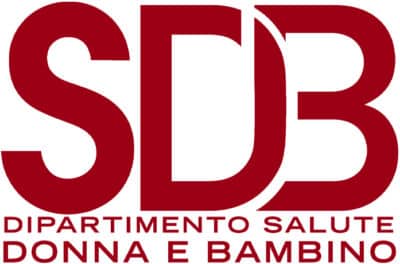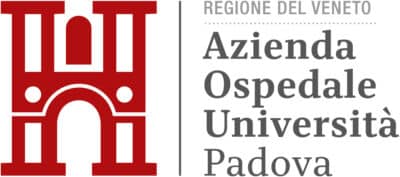

The Master in Technique and Interpretation of Echocardiography in Paediatric Patients provides graduates in Medicine and Surgery, Nursing and Obstetrics competences in the technical echocardiographic execution and in the echocardiographic diagnostic of congenital and paediatric cardiac diseases.
Graduates in Medicine and Surgery will acquire the theoretical and practical knowledge to execute and report echocardiographies on paediatric patients. They will also learn how to execute an echocardiographic exam independently even on complex paediatric patients.
Graduates in Nursing will acquire the theoretical and practical knowledge to execute and interpret echocardiographies on paediatric patients.
They will also learn how to create a pre-report to submit to the doctor in charge.
Graduates in Obstetrics will acquire the theoretical and practical knowledge to execute echocardiographies on neonatal and paediatric patients, interpret their results and write a preliminary report.
The Master in Technique and Interpretation of Echocardiography in Paediatric Patients provides advanced competences in paediatric echocardiography, with a focus on congenital cardiac diseases. The course provides theoretical training to cover the fundamentals of paediatric echocardiography and cardiac malformations, integrated with hands-on practice, use of advanced simulators and attendance of specialist wards. Attendees will acquire the skills to execute and interpret paediatric echocardiographies, even in complex patients, and in drafting pre-reports to be subjected to specialists.
The course includes lectures, workshops, practice sessions, an internship at the Centro di Cardiologia Pediatrica in Padua, and a project work where the knowledge acquired will be applied to real clinical contexts. Internships will focus on direct care activities and on the execution of echocardiographies in paediatric wards, by promoting the acquisition of practical experience in the interpretation of the main congenital cardiac diseases and in advanced diagnostic techniques. Attendees will develop self-directed and independent learning, improving their skills in paediatric echocardiography, and acquiring a solid base to work as paediatric echocardiographists or echocardiography operators in health facilities.
The Master in Technique and Interpretation of Echocardiography in Paediatric Patients is addressed to graduates in Medicine and Surgery, Nursing and Obstetrics, who wish to acquire advanced paediatric echocardiography competence, and develop specific skills in the execution and interpretation of exams, with special focus on congenital heart diseases.
The course is addressed to both professionals already working in a hospital or clinical settings, and to those who wish to specialize in a highly-specific sector, such as paediatric cardiology diagnostics. Career opportunities include first- and second-level healthcare facilities, hospitals, paediatric clinics and echocardiography labs, as paediatric echocardiographists, capable of executing and reporting the exams independently.
Graduates in Nursing and Obstetrics may work as echocardiography technicians, by performing and interpreting the exams (without reporting them) in different healthcare facilities.
The main sectors include paediatric cardiology diagnostics, with a focus on congenital malformations and complex pathologies. The skills acquired include the execution, interpretation, diagnosis and management of follow-ups with advanced techniques, including transoesophageal, 3D and speckle tracking echocardiography.
The Master provides in-depth knowledge to meet the growing demand of specialists in this field.
The Master in Technique and Interpretation of Echocardiography in Paediatric Patients provides in-depth knowledge about the following topics:
Module 1 – SEQUENTIAL-ANATOMICAL APPROACH TO BASIC ECHOCARDIOGRAPHY
Anatomical approach to paediatric echocardiography; echocardiographic projections to examine a paediatric heart. Focus on the basic principles to execute a complete echocardiography exam, on cardiac anatomy, and on the visualization of the main paediatric heart structures.
Module 2 – SYSTOLIC AND DIASTOLIC FUNCTION
Evaluation of the cardiac function through echocardiography. Minimal data set for a functional echocardiographic report; analysis of the heart function in all its sections and data interpretation to provide an accurate diagnosis.
Module 3 – CONGENITAL HEART DISEASES – PART 1
Congenital heart diseases with pulmonary hyperflow, and echocardiographic techniques to diagnose them and to monitor patients.
Module 4 – CONGENITAL HEART DISEASES – PART 2
Tronconic congenital heart diseases, identification and diagnosis via echocardiography, with focus on advanced diagnostic methods.
Module 5 – CONGENITAL HEART DISEASES – PART 3
Univentricular physiology and how to diagnose those rare and complex pathologies. Echocardiographic methods to assess and monitor patients.
Module 6 – FOETAL MEDICINE AND PRENATAL ECHOCARDIOGRAPHY
Foetal echocardiography, exam indications and minimal data set required for the correct assessment. How to perform a prenatal echocardiography, by identifying the cardiac pathologies in foetuses and interpreting the results for an early management of diagnostic cases.
Module 7 – INTEGRATED IMAGING IN CONGENITAL CARDIAC DISEASES
Role of advanced imaging techniques to manage congenital cardiac diseases, and their integration with echocardiography for a complete diagnosis and follow-up.
Module 8 – EMODYNAMICS IN CONGENITAL CARDIAC DISEASES
Cardiac catheterization in congenital cardiac diseases. How to perform it and interpret the results. Data integration with other diagnostic methods, such as hemodynamic.
Module 9 – ADVANCED IMAGING IN ECHOCARDIOGRAPHY
Advanced echocardiography techniques, to diagnose and monitor congenital cardiac diseases, and improve evaluation quality and precision.
Module 10 – CARDIOMYOPATHIES
Cardiomyopathies in paediatric cardiology, how to recognize them and create a structured diagnostic report.
Module 11 – TRANSESOPHAGEAL ECHOCARDIOGRAPHY
Executing and interpreting transoesophageal echocardiography, a fundamental technique to diagnose and monitor congenital cardiac diseases during surgery or in complex situations.
Module 12 – SURGICAL TREATMENT OF CONGENITAL CARDIAC DISEASES
The most common surgical techniques to treat congenital cardiac diseases. Surgical approaches, indications for treatment and echocardiographic information useful for treatment and post-surgery.
The general ranking of merit for the academic year 2025/26 will be published on the Italian page of this Master according to the timing provided in the Call.
Information
FAQ
Yes, the Master includes a significant practical section, with an internship at the Paediatric Cardiology Centre of the Padua University Hospital. Students will have the chance to perform on-field care activities, with advanced simulators and will take part in real echocardiographic diagnoses on paediatric patients.
Yes, attendance of at least 75% of the course is mandatory. This implies that attendees must attend at least three fourths of the lectures and practical sessions, including the internship. If the absences exceed this threshold, this may affect the possibility to take part in the final exam.
Remote learning will be organized on e-learning platforms, where attendees will find the educational material, recorded lectures, seminars and interactive resources. Remote learning will be integrated with in-person lessons and hands-on activities to provide a thorough learning experience.

